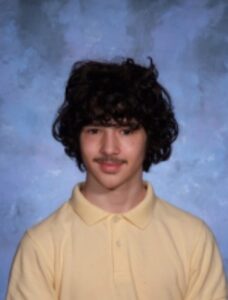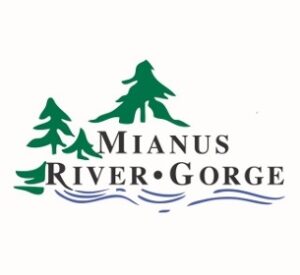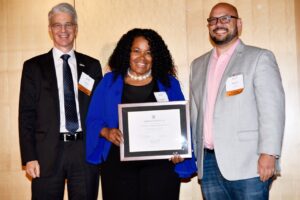
The 22-mile Mianus River runs through the Mianus River Gorge Preserve in the bucolic town of Bedford in Westchester County. The sounds of water gushing through the river, along with the sounds of creatures on the river bank and the woods can be heard on acoustic recorders planted throughout the preserve. One of those is the sound of bats.
Briarcliff High School junior Noah O’Neill has been working on those recorders for the past year, helping to set them up and listening to the recordings. His goal is to learn about bat activity in the preserve, as part of his science research project.
“We run the recorders at certain times, such as from dusk to dawn, and when they detect a bat call, the recorders will record a file,” Noah said. “It records a bunch of files over the course of weeks, which gives us the general idea of the likelihood of finding bats in the area.”
According to Noah, recording those sounds over the course of several years can provide information on bat activity, which will help determine if the bats are at risk.
One of the reasons Noah has selected to focus his science research project on bats is due to his fascination with them.
“Bats are one of my favorite animals,” he said. “They have cool functions, such as eco-location. Their immune system is very special – they can harbor many diseases at a time because they don’t get sick. I also think bats look cool and they are the only mammal that flies.”
 Most students taking the Science Research class, which is a three-year commitment, have mentors. Noah has two: Chris Nagy, PhD, who is Director of Research and Education at the preserve, and Budd Veverka, who is a wildlife biologist and Director of Land Management there.
Most students taking the Science Research class, which is a three-year commitment, have mentors. Noah has two: Chris Nagy, PhD, who is Director of Research and Education at the preserve, and Budd Veverka, who is a wildlife biologist and Director of Land Management there.
“They are the ones who choose the sites for the recorders and they set them up when I am not there,” Noah said. “My job is mostly to analyze the data from the recorders and report about it.”
So far, Noah’s conclusion is that there are definitely bats in the area, but this conclusion did not come easily.
“There can be problems with recordings, for example, or there can be the challenge of pulling data,” he said. “This is a preliminary study of the species. It is laying the foundation for future studies by amassing information that can be used to support conclusions.”
However small the scope of the research may seem, there are still new things Noah has learned.
“Some sites show much larger numbers of bats, than other recording sites, which makes me question if this may be due to other factors, like maybe the recorders wore out.
“By determining which sites record more information about bats, it tells us which sites we should stop using to record, and which we should continue to use,” he said.
When asked if he would recommend the Science Research class to incoming sophomores next year, Noah said that it depends on their goals. He said this type of research might not be attractive to people who want to find answers quickly.
“You need to have a lot of patience,” he said. “My work might not be significant to a project right now, but the ultimate goal is to collect data that can help us learn about other animals that can maybe help us learn about ourselves.”
Right now, however, his goal is to help the bats because they are important to the ecosystem, he said. That is because they eat dangerous bugs like mosquitos that harbor of diseases.”
Noah is quick to thank his parents, who have helped him carry out the project by driving him to the preserve and have helped him think about his research by asking questions.
“They both have doctorates, so and they give me advice that is very smart and helpful,” he said. “My science research teachers have also been very helpful. They motivated me to get my project going and make sure I stay on track.”
As of now, Noah is not sure what degree he will pursue in college.
“I don’t think it will be biology or environmental conservation, but doing science research has allowed me to learn about experimental design and how to conduct research, which will help me no matter what major I choose in college,” he said.







